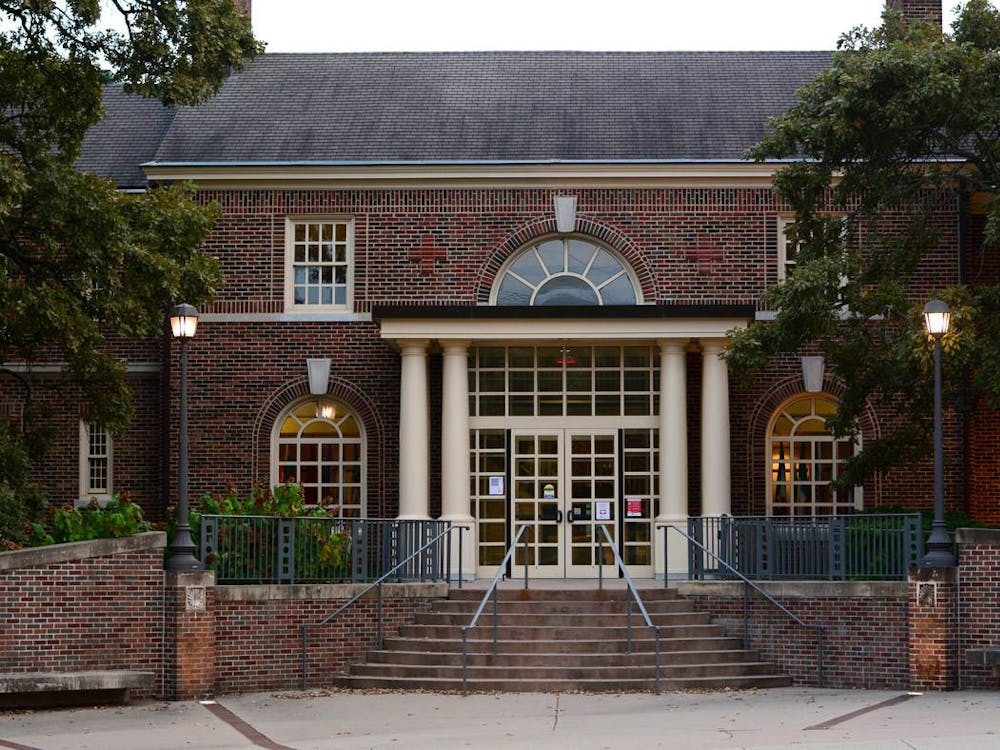Miami rabbi responds to anti-Semitism
Since the beginning of the year, 161 bomb threats have targeted Jewish institutions across the country, according to the Anti-Defamation League. Most recently, at least five institutions reported threats on Sunday, March 13, as the Jewish community observed the religious holiday of Purim.
This follows vandalism of Jewish cemeteries last month, including the toppling of over 75 headstones at the Mount Carmel Cemetery in Northeast Philadelphia and the damaging of about 100 headstones at the Chesed Shel Emeth Society cemetery outside St. Louis.
Rabbi Yossi Greenberg of the Chabad Jewish Student Center at Miami discussed the recent uptick in anti-Semitic threats in a live Facebook video on March 2.
"Do we have the right to be upset? Absolutely," Greenberg said in the video.
He went on to explain that, in a conversation with students about recent threats, they had asked themselves: What is does it take to make a bomb threat?
"All it takes is a phone and a phone call," Greenberg said. "And we realized that we can do a positive thing with the phone by taking it out and doing something good."
Whether that be calling a family member, making a positive post on social media or using a phone to read more about Jewish faith and traditions, those actions can make all the difference, he said.
"Every step back can -- and must -- become the impetus for a giant leap forward," Greenberg said.
Last Tuesday, March 7, all 100 United States senators signed a letter urging President Trump's administration to take action in supporting local law enforcement agencies in the protection of Hebrew schools, Jewish Community Centers (JCCs) and synagogues.
"These cowardly acts aim to create an atmosphere of fear and disrupt the important programs and services offered by JCCs to everyone in the communities they serve, including in our states," the senators wrote in the letter.
Enjoy what you're reading?
Signup for our newsletter
Isaac Italiaander, president of Chabad at Miami, acknowledged that, unfortunately, these incidents are not uncommon, and were not uncommon even before the incidents of anti-Semitism seen this year which have been covered more extensively in the media as of late.
According to the Anti-Defamation League's annual audit of anti-Semitic incidents, there were 941 total reported incidents in 2015, a slight increase (three percent) from the year before. Notably, 90 incidents on college campuses were reported in 2015 compared to 47 in 2014, and those incidents made up 10 percent of the total that year.
Though these incidents are disconcerting to read about in the news, said student Sam Popky, he hasn't felt their effect personally. Popky, who grew up in a strong Jewish community, said that he has not encountered these problems at Miami.
"We still feel safe here," Popky said.
"It's easy to pretend it doesn't exist, especially in a place like Oxford," Italiaander said.
There have been very few accusations of anti-Semitism at Miami, Greenberg said, but that does not negate the need for action and awareness.
"We need more Jewish pride, not less," he said. "Less is giving in. We will not give in."
Jewish pride can be expressed differently by every individual, but Greenberg had a few suggestions for students, including wearing a yarmulke, a small round cap worn by Jewish men, hanging a mezuzah, a piece of parchment inscribed with Hebrew verses from the Torah, on the door, or wearing a Jewish necklace.
To Italiaander, increasing Jewish pride starts with educating people.
"I have a lot of Jewish pride. Judaism is really important to me," Italiaander said. "There are a lot of misconceptions people have, but having pride and being positive are at the core of the Jewish philosophy."
This call for positive action extends beyond the Jewish community, Greenberg said. Non-Jewish students can take this as an opportunity to voice encouragement for their Jewish friends, educate themselves about Judaism and spread awareness to support Jewish communities.
The Jewish community needs a clear message at this time, Greenberg said, and he himself has his focus on resilient optimism.
"We fight darkness with light," Greenberg said. "That's not a gimmick or slogan. It is real life"



